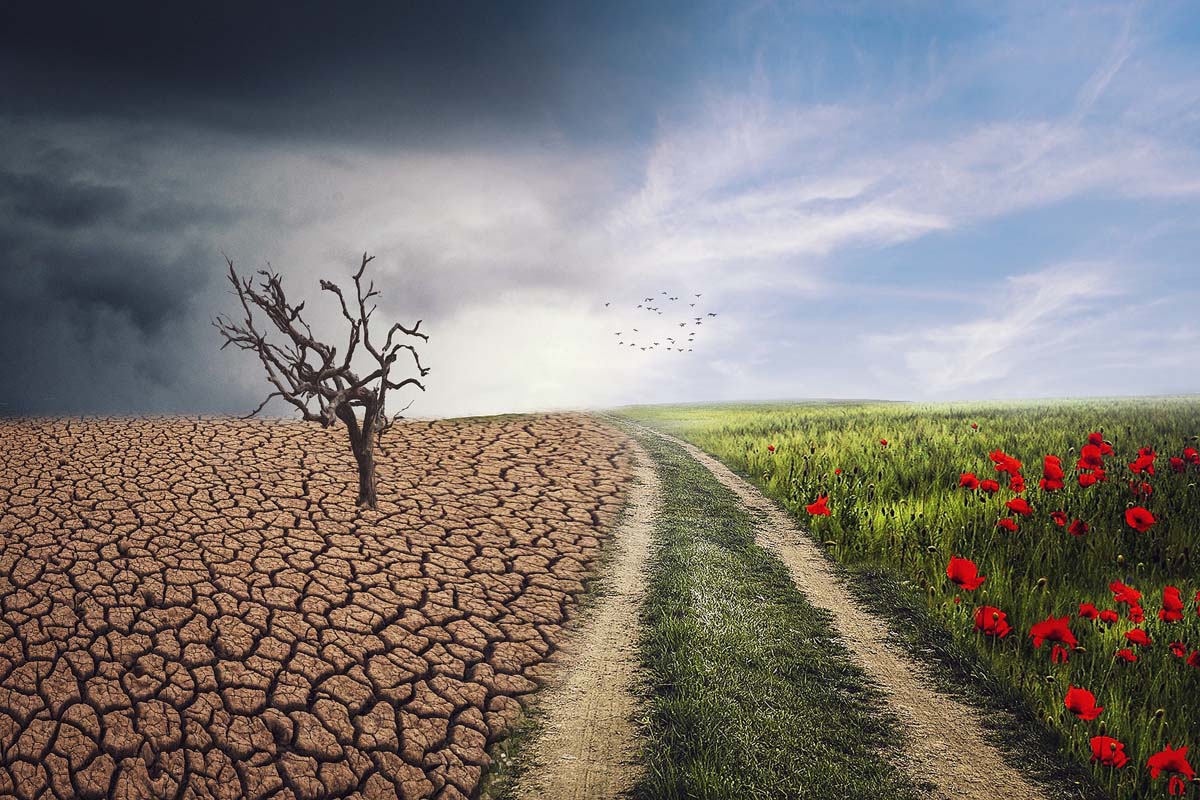
403
Sorry!!
Error! We're sorry, but the page you were looking for doesn't exist.
Climate Change Drives Massive Sinkholes Throughout Middle East
(MENAFN) As climate change drives a sharp decline in rainfall throughout the Middle East, communities increasingly rely on groundwater for farming, exacerbating the formation of enormous sinkholes due to the region’s fragile soil.
A joint investigation by an Anadolu correspondent and the environmental group Blue Peace Middle East (BPME) reveals that the Middle East and North Africa (MENA) remain among the globe’s most vulnerable regions to climate change impacts.
Lebanon, grappling with “extremely high water stress,” has seen its average temperature climb by 0.11 degrees Celsius each decade, while average monthly rainfall has dropped by 11 millimeters since 1950.
Iran, another nation suffering from acute water scarcity, has experienced a 2-degree Celsius rise in average temperatures since the 1960s. Rainfall has shrunk by 20% over the past two decades, accompanied by shifting precipitation patterns.
Jordan faces similarly dire water challenges, with projections estimating rainfall reductions of 17% by mid-century and 21% by 2100.
In Iraq, the 2020-2021 rainy season ranked as the second driest in four decades, slashing water flow in the Tigris and Euphrates rivers by 29% and 73%, respectively. Drought and soil salinity linked to water shortages cause 25,000 hectares of agricultural land to degrade annually. Alarmingly, 70% of Iraq’s farmland risks complete degradation due to ongoing climate pressures.
Türkiye’s temperatures are forecast to rise 1 to 2 degrees Celsius by 2040, while rainfall in critical water regions could decline by up to 200 millimeters.
In Syria, a 1.2-degree Celsius temperature increase would transform droughts from rare once-every-250-year events to recurring once every decade. Should temperatures climb to 2 degrees Celsius, severe droughts could strike approximately every five years.
This data underscores the urgent threat climate change poses to water security, agriculture, and the environment across the Middle East, demanding immediate regional and global action.
A joint investigation by an Anadolu correspondent and the environmental group Blue Peace Middle East (BPME) reveals that the Middle East and North Africa (MENA) remain among the globe’s most vulnerable regions to climate change impacts.
Lebanon, grappling with “extremely high water stress,” has seen its average temperature climb by 0.11 degrees Celsius each decade, while average monthly rainfall has dropped by 11 millimeters since 1950.
Iran, another nation suffering from acute water scarcity, has experienced a 2-degree Celsius rise in average temperatures since the 1960s. Rainfall has shrunk by 20% over the past two decades, accompanied by shifting precipitation patterns.
Jordan faces similarly dire water challenges, with projections estimating rainfall reductions of 17% by mid-century and 21% by 2100.
In Iraq, the 2020-2021 rainy season ranked as the second driest in four decades, slashing water flow in the Tigris and Euphrates rivers by 29% and 73%, respectively. Drought and soil salinity linked to water shortages cause 25,000 hectares of agricultural land to degrade annually. Alarmingly, 70% of Iraq’s farmland risks complete degradation due to ongoing climate pressures.
Türkiye’s temperatures are forecast to rise 1 to 2 degrees Celsius by 2040, while rainfall in critical water regions could decline by up to 200 millimeters.
In Syria, a 1.2-degree Celsius temperature increase would transform droughts from rare once-every-250-year events to recurring once every decade. Should temperatures climb to 2 degrees Celsius, severe droughts could strike approximately every five years.
This data underscores the urgent threat climate change poses to water security, agriculture, and the environment across the Middle East, demanding immediate regional and global action.

Legal Disclaimer:
MENAFN provides the
information “as is” without warranty of any kind. We do not accept
any responsibility or liability for the accuracy, content, images,
videos, licenses, completeness, legality, or reliability of the information
contained in this article. If you have any complaints or copyright
issues related to this article, kindly contact the provider above.

















Comments
No comment